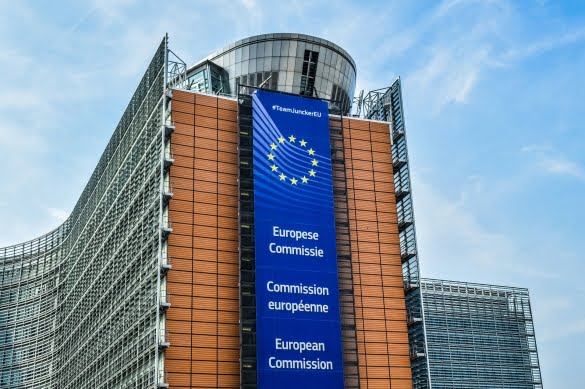
European Commission on Georgia’s Fulfillment of Visa Liberalization Requirements
The European Commission has released its assessment of the fulfillment of visa liberalization requirements by Western Balkans and Eastern Partnership countries, including Georgia.
The report highlighted that Georgia made a “significant effort” to address unfounded asylum applications in Member States, having prevented 2,202 citizens from leaving the country on the basis of legislation allowing authorities to prevent departures to Member States if basic conditions are not met.
It also reported, however, that in 2021, the number of applications for international protection in Member States increased by 69% compared with 2020, with 14,600 applications registered in 2021 and 8,650 in 2020. The report noted that the recognition rate slightly increased from 4.3% in 2020 to 4.9% in 2021.
The report also stated that in 2021, the number of Georgian nationals found to be irregularly staying in the Member States rose by 28%, totaling 13,000 people versus 10,165 in 2020. Following the same trend, the number of refusals of entry issued to Georgian nationals increased by 50% from 2,065 to 3,105 in 2021.
Regarding the cooperation on readmission, the return rate fell by 13% in 2021, as did the number of people returned. Overall, Frontex reported a “satisfactory implementation” of the EU Readmission Agreement in 2021, while several Member States likewise reported “good cooperation” with Georgia, particularly on the use of return flights.
While the document complimented Georgia on its cooperation with various anti-crime and anti-corruption efforts, it underscored that the Georgian organized crime networks continue to be “among the most active” in organized property crimes across the EU, including burglaries, theft of vehicles and vehicle parts, and organized shoplifting, as well as drug trafficking. It also underlined that Georgian criminal networks “continue to be involved in smuggling irregular migrants from Turkey to the EU.”
Notably, the document also lamented the dismantling of the State Inspector’s Service, “which benefitted from EU support,” and the dismissal of the State Inspector “without following the standard procedure.” They further noted that its abolishment raised concerns about the independence of Georgia’s data protection authority, “which is a benchmark under visa liberalization.”
The document stressed that Georgia needs to “better address” cases of high corruption and ensure that all such cases are investigated. Drawing attention to the investigations conducted into high corruption in 2021, the report added that “more needs to be done to tackle high-level corruption, in particular the role of large-scale vested interests and their influence in the economic and political spheres.”
Regarding the judiciary, the report likewise disapproved of the appointment of 28 judges to the Supreme Court between 2019-2021, which were “made before the existing shortcomings in the nomination process was addressed, [and] are not in line with” the OSCE and Venice Commission’s recommendations. “The EU had expressed repeated concerns over this procedure, which undermined judicial independence and public trust in the Georgian justice system,” the document underscored.
In line with its findings, the European Commission recommends the following for Georgia:
- Align Georgia’s visa policy with the EU’s list of visa-required third countries, particularly those third countries presenting irregular migration or security risks to the EU;
- Continue to address unfounded asylum applications; tailor information campaigns on the visa-free regime to relevant migrant profiles, including vulnerable groups, those overstaying, and those filing unfounded asylum claims;
- Increase efforts to fight corruption, especially large-scale vested interests and their influence one economic and political spheres, particularly by strengthening independence/coordination of anti-corruption institutions, and providing them with necessary resources;
- Finalize efforts to fully align national legislation with the EU acquis on anti-money laundering and counterterrorism financing;
- Step up efforts against organized crime, especially networks operating in the EU;
- Fully align procedure for appointing Supreme Court judges with Venice Commission’s recommendations, and adopt/implement legislation evaluating the integrity/performance of Supreme Court Judges;
- and, ensure the independence of the data protection authority.
Read the full report here.
Also Read:
This post is also available in: ქართული Русский